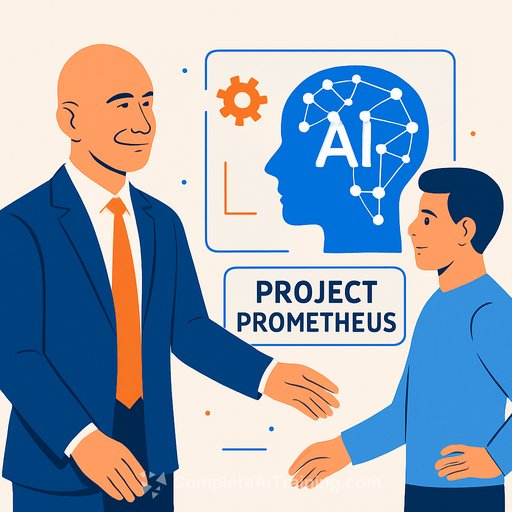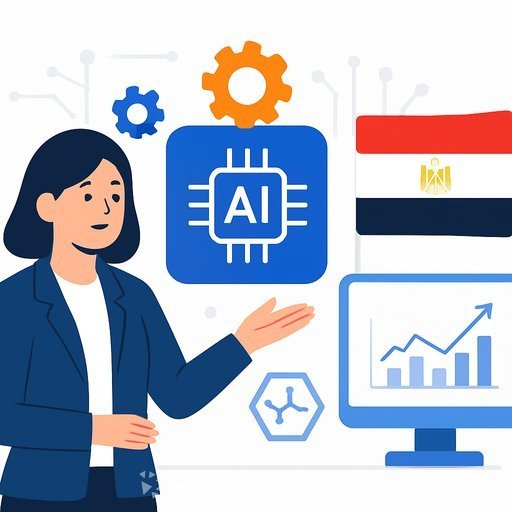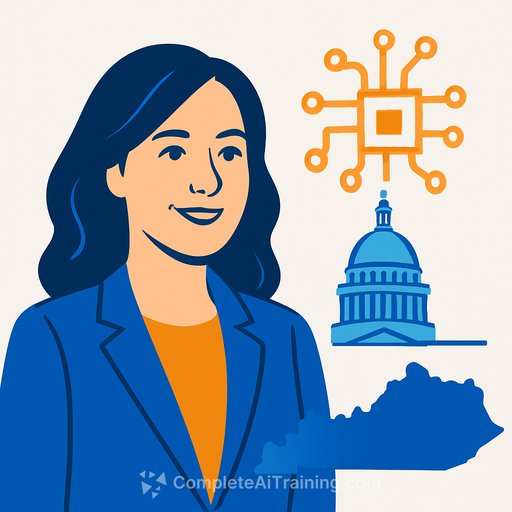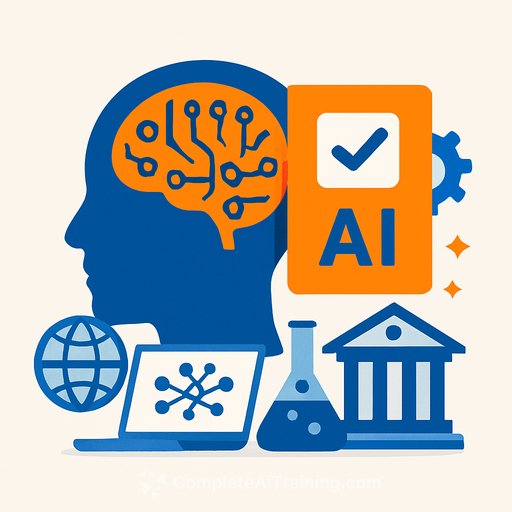Jeff Bezos steps in as co-CEO of $6.2B AI startup Project Prometheus
Jeff Bezos is taking a hands-on role again-this time as co-CEO of Project Prometheus, an AI startup that has reportedly raised $6.2 billion. That funding puts it in rare company for an early-stage venture and signals serious ambitions.
This is Bezos's first formal executive title outside Amazon since 2021. He remains the founder at Blue Origin, but Prometheus is a different move: direct operational leadership in AI.
Why this matters for engineers and builders
Prometheus isn't chasing another chatbot. The focus is AI that accelerates engineering and manufacturing-computing, aerospace, and automotive included-using feedback from the physical world. Think models that learn from experiments, not just text.
That means new demands on data pipelines, simulation, lab automation, and production ML. It also means budgets shifting to hybrid stacks that bridge code, sensors, and hardware.
What Prometheus is building (based on what's known)
The company has kept a low profile, but people familiar with the effort say it tracks with Bezos's long-running interest in space and industrial tech. The goal: AI systems that learn through trial, error, and measured outcomes to move real engineering work faster.
Prometheus has reportedly hired nearly 100 people, including researchers from top labs like OpenAI and Google DeepMind. Where it's based and when it officially formed aren't yet public.
Who's leading
Bezos will co-lead with Vik Bajaj, a physicist and chemist with experience at Google's X lab and Verily, and most recently as CEO of Foresite Labs. That pairing blends capital, operational experience, and deep technical roots.
The broader shift: AI that learns from the physical world
Prometheus joins a growing set of companies building AI for scientific discovery, robotics, and lab-driven R&D. Periodic Labs is following a similar pattern: robots running high-volume experiments to create training data for models.
This approach requires serious infrastructure-compute plus robotics plus data ops. It's no surprise the checks are big; another recent mega-round saw Thinking Machines Lab raise $2 billion. Prometheus's $6.2 billion puts it in its own tier.
What to watch if you build software
- Systems design: Expect agentic loops that propose, simulate, test, and iterate-online learning with real feedback, not just static datasets.
- Data engineering: Fusion of text/code, time series, sensor data, and experiment logs. Strong dataset versioning, lineage, and reproducibility will be mandatory.
- Simulation + RL: Greater use of physics engines, digital twins, and reinforcement learning for policy training before deployment.
- Hardware-in-the-loop: CI/CD extends to benches, rigs, and robots. Safe rollout, rollback, and guardrails for actions that can break things.
- Infra choices: GPU clusters plus lab automation. Some workloads will go on-prem for latency, cost, and IP control; others stay in cloud for burst capacity.
- MLOps maturity: Experiment tracking, feature stores for heterogeneous data, evaluation suites that measure both model quality and real-world outcomes.
- Compliance and safety: Aerospace and automotive require rigorous testing, documentation, and standards alignment from day one.
- New tool surface area: APIs for experiment orchestration, synthetic data pipelines, and evaluation frameworks for physical tasks are ripe opportunities.
Practical implications for your roadmap
If your product touches robotics, manufacturing, materials, or any kind of physical experimentation, expect customers to ask for AI that closes the loop-suggest, test, learn. You'll need clean interfaces between models, simulators, and hardware controllers.
Hiring shifts, too. Teams that blend ML, controls, and mechanical/electrical engineering will outpace pure-software stacks. Build partnerships with labs and suppliers early; the integration work is where timelines slip.
Why the money matters
$6.2 billion buys time, talent, and the infrastructure to run thousands of experiments and simulations in parallel. It also sets a bar for competitors. To play here, you either raise big, or you niche down and integrate smart with existing lab ecosystems.
If Prometheus delivers, it could reset expectations for how fast we can go from idea to validated prototype across materials, aerospace components, and advanced manufacturing.
Bottom line
Bezos stepping in as co-CEO is a clear signal: AI that touches atoms, not just tokens, is the next frontier for serious builders. For IT and development teams, the opportunity is in stitching together models, data, and machines into reliable, auditable systems.
If you're leveling up for this shift, explore focused training that connects ML with software delivery and systems engineering. A good starting point for developers: AI certification for coding.
Your membership also unlocks:





